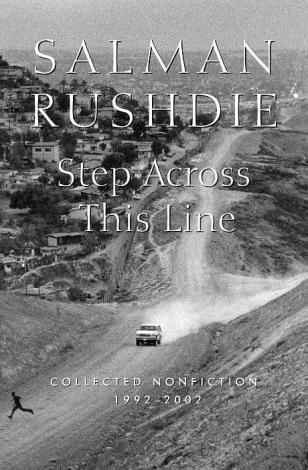
Step Across This Line
Collected Nonfiction 1992-2002
کتاب های مرتبط
- اطلاعات
- نقد و بررسی
- دیدگاه کاربران
نقد و بررسی

Starred review from July 22, 2002
Roughly one-fourth of these essays deals with the response of the media, various governments and Rushdie himself to what he calls the "unfunny Valentine" he received on February 14, 1989, from the Ayatollah Khomeini: the fatwa calling for his death. Everyone, it seems, had a script for Rushdie to follow, though none of these fantasies resembled the rather simple one the author fancied (and which seems to have been realized), which is that his problems gradually disappear and he be allowed to resume a more or less normal writerly life. To paraphrase an idea that appears in several of these essays, the problem is that frontiers cross us rather than the other way around: we are going about our business when our country is divided (as happened to Rushdie's native India in 1947) or we encounter a shocking work of art or our enemies declare they will kill us. Many respond to unnerving changes by embracing religion, but, says Rushdie, "ancient wisdoms are modern nonsenses"; in place of sectarian fervor, he recommends intellectual freedom, a simple concept yet a rigorous practice, as this book proves. These essays range over literature, politics and religion, as well as Rushdie's two private passions, rock music and soccer. They are united by a play of sparkling intelligence seasoned with sly wit, qualities that would serve the world at any time in its long, flawed history. After all, says Rushdie, the story he loved first and still loves best, perhaps the story of all humanity, is The Wizard of Oz, a fable that tells us the grown-up world doesn't really work, that adults can be good people and still be bad wizards.

May 1, 2002
In his first nonfiction work in a decade, Rushdie ranges from Amadou Diallo to Dr. Seuss to U2.
Copyright 2002 Library Journal, LLC Used with permission.

Starred review from September 15, 2002
Condemned to death by Iranian Islamic extremists for his novel " The Satanic Verses" , Rushdie was essentially hijacked from his life and held hostage. Driven by conscience and circumstance to speak out for freedom of expression and intellectual liberty, and compelled by his artist's soul to write imaginatively, he has managed to continue writing exciting fiction while developing a potent nonfiction voice in which he gracefully parses politics and art with equal vigor, knowledge, and, most remarkably, irrepressible joy. A world-class writer and perceptive witness to international politics, personal valor, religious intolerance, and artistic transcendence, he has written stirring and significant essays about his harrowing, often surreal life in the wake of the " fatwa," and sharp editorials on Kashmir, northern Ireland, Kosovo, and Islam and the West before and after September 11. But he has also composed an enrapturing essay about the film that made him a writer, " The Wizard of Oz" , and incisive looks at rock and roll, reading, artistic influence, photography, and commercial hype, as well as inspiring discussions of why literature and freedom of speech matter. Rushdie's literary mind is vibrant and generous, his heart stalwart, his pen mighty. (Reprinted with permission of Booklist, copyright 2002, American Library Association.)

























دیدگاه کاربران